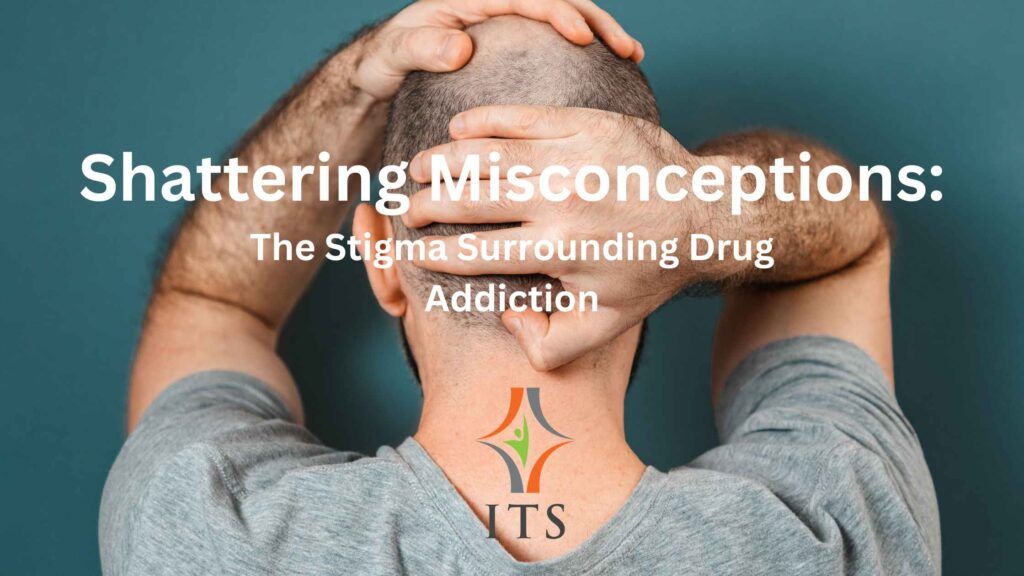
Drug addiction, a complex and often misunderstood condition, affects millions worldwide. Despite advances in our understanding of addiction as a chronic brain disorder, stigma and misconceptions persist, creating significant barriers to treatment and recovery. Our organization is dedicated to addressing these challenges head-on by dispelling myths, fostering compassion, and promoting evidence-based treatment approaches. This blog post seeks to illuminate the realities of drug addiction, tackle prevalent myths, and highlight the impact of stigma, urging a collective shift towards a more supportive and inclusive approach to addiction treatment.
Understanding Drug Addiction
Drug addiction is characterized by compulsive drug seeking and use, despite harmful consequences. It’s essential to recognize that addiction is not a choice or a moral failing but a medical condition that requires comprehensive treatment.
The Realities of Addiction
- Chronic Brain Disorder: Addiction involves changes in the brain’s reward, stress, and self-control circuits, affecting behavior and decision-making.
- Influence of Various Factors: Biological, environmental, and genetic factors play significant roles in the development of addiction, underlining its complexity.
Myths and Misconceptions
Dispelling myths is crucial in changing perceptions and fostering empathy towards those struggling with addiction.
Common Myths About Drug Addiction
- Myth 1: “Addiction is a choice.” The initial decision to use drugs may be voluntary, but addiction is a compulsion beyond an individual’s control.
- Myth 2: “Addiction is a moral failing or lack of willpower.” Addiction is a medical condition, not a character flaw.
- Myth 3: “Only certain types of people get addicted.” Addiction does not discriminate; it can affect anyone, regardless of background or values.
- Myth 4: “People can quit easily if they really want to.” Overcoming addiction often requires professional help and continuous support.
The Impact of Stigma
Stigma surrounding drug addiction can lead to numerous adverse effects, exacerbating the challenges faced by those seeking recovery.
Consequences of Stigma
- Barriers to Treatment: Stigma often prevents individuals from seeking the help they need, fearing judgment and discrimination.
- Social Isolation: The shame associated with addiction can lead to withdrawal and loneliness, hindering recovery.
- Employment and Educational Opportunities: Stigmatization can result in the loss of job opportunities and educational setbacks.
- Mental Health: The negative perception of addiction can worsen mental health conditions, affecting self-esteem and overall well-being.
Breaking Down the Stigma
Addressing and eliminating the stigma surrounding drug addiction is a collective responsibility that requires informed action and compassionate engagement.
Strategies for Reducing Stigma
- Educate: Increase awareness about addiction as a brain disorder, challenging prevailing myths.
- Promote Person-First Language: Use terms that put the individual before their condition, avoiding derogatory labels.
- Support Evidence-Based Treatment: Advocate for access to comprehensive, science-backed treatment options.
- Advocate for Policy Change: Work towards policies that facilitate treatment access and reduce stigma.
- Share Recovery Stories: Highlight narratives of resilience and recovery to inspire hope and challenge stereotypes.
Conclusion
Our understanding of drug addiction has evolved significantly, yet stigma remains a formidable barrier to effective treatment and recovery. By confronting and dispelling the myths surrounding addiction, we foster a more compassionate society that supports, rather than ostracizes, those in need. Our organization remains committed to this cause, advocating for a nuanced understanding of addiction, promoting evidence-based treatments, and empowering individuals on their path to recovery. Together, we can shatter the misconceptions and build a foundation of support for those affected by drug addiction. We invite you to join us in this important work, contributing to a future where everyone has the opportunity to heal and thrive.
